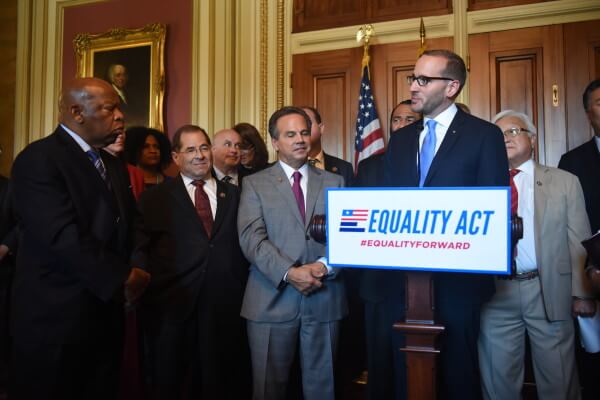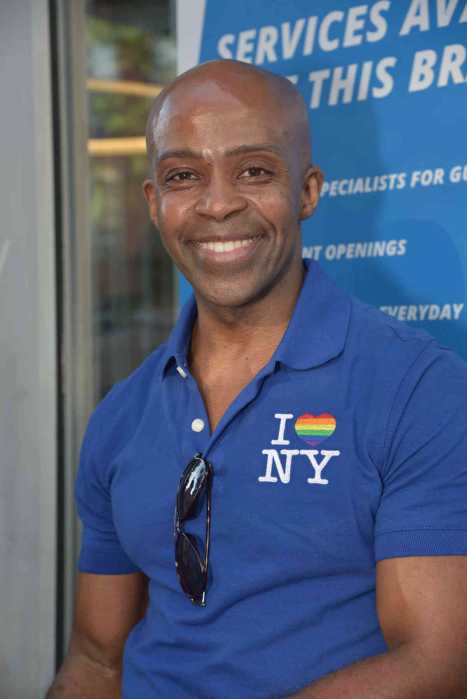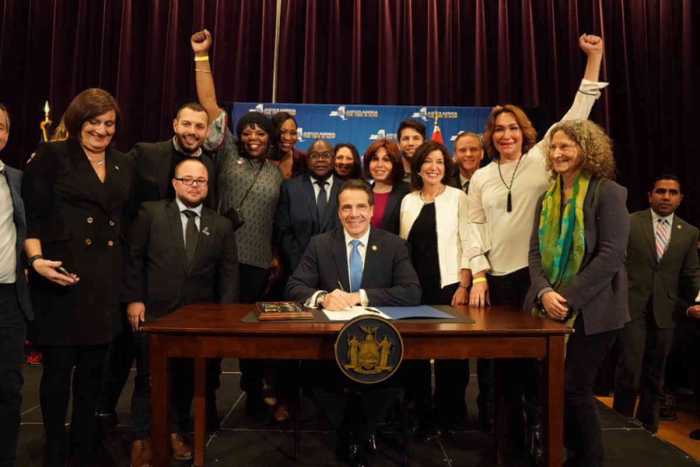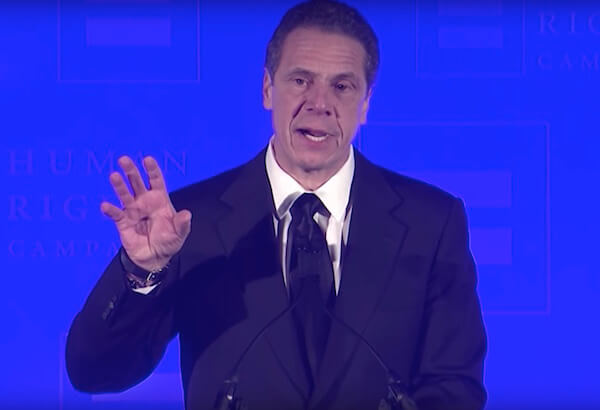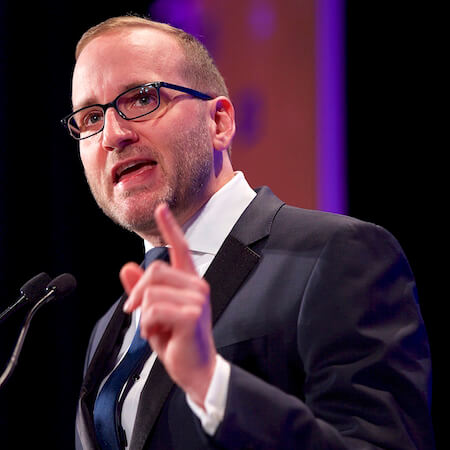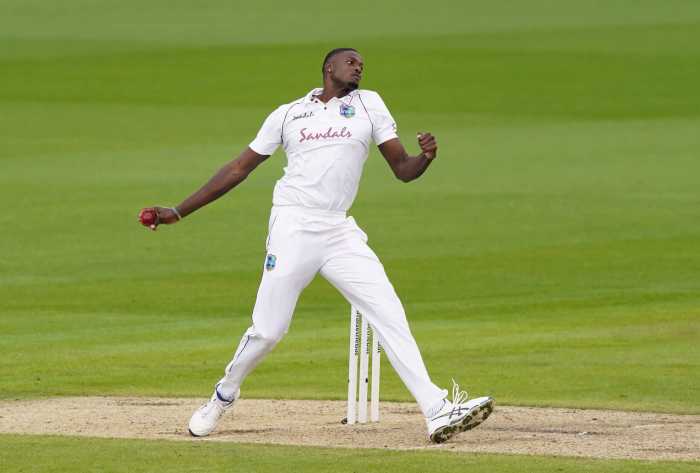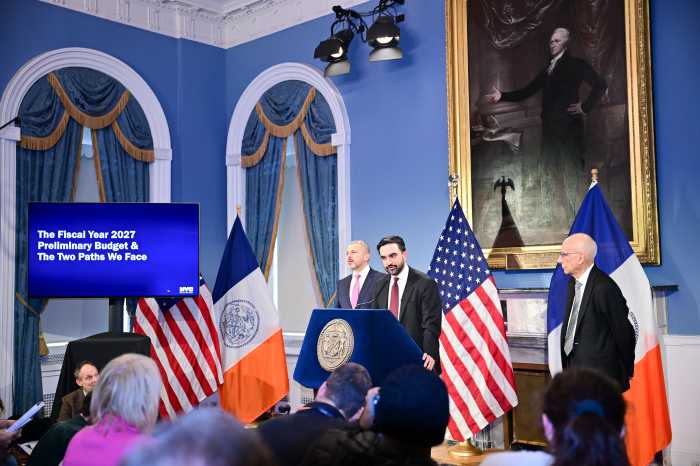L to R: Rep. John Lewis, Rep. Jerry Nadler, Rep. David Cicilline, and Chad Griffin, president of the Human Rights Campaign, at the July 23 introduction of the Equality Act. | HUMAN RIGHTS CAMPAIGN
BY DUNCAN OSBORNE | When the Equality Act was introduced in Congress on July 23, it was a compelling setting with equally compelling champions.
A large group of senators, representatives, and advocates gathered in the Senate’s LBJ room, which is named for Pres. Lyndon Johnson, who signed the Civil Rights Act of 1964 and the Voting Rights Act of 1965 into law.
Among the featured speakers was Rep. John Lewis, who represents an Atlanta district. He linked the Equality Act, which would add sexual orientation and gender identity to the 1964 law, to the earlier civil rights struggle that he played a central role in.
“We believed then, as we do now, that we are a society committed to equal justice under the law,” Lewis said. “We fought too hard and too long against discrimination based on race and color not to stand up against discrimination based on sexual orientation and gender identity.”
Lewis led the Student Non-Violent Coordinating Committee (SNCC) during the civil rights movement and was among those who were beaten when police attacked protesters on the Edmund Pettus Bridge in Selma, Alabama during a 1965 march. That event galvanized public support for the Voting Rights Act of 1965.
The Equality Act begins with record support for a piece of LGBT legislation, with 168 co-sponsors in the House, where Democrat David Cicilline of Rhode Island is the lead, and 39 co-sponsors in the Senate, where Democrat Jeff Merkley of Oregon leads.
But in contrast with the Employment Non-Discrimination Act (ENDA), the now defunct legislation that only barred employment discrimination based on sexual orientation and gender identity, the Equality Act has few supporters beyond Capitol Hill.
Most notable is that the NAACP, which did not respond to a call seeking comment, has yet to take a position on the legislation. That organization, along with the Leadership Conference on Civil and Human Rights (LCCHR), is seen as a gatekeeper for access to the 1964 act, which has not been touched by Congress since it passed.
“I think the NAACP is doing what any group should do, which is to be thoughtful and thorough with their membership about this bill,” said Laura Durso, director of the LGBT research and communications projects at the Center for American Progress, a progressive Washington, DC think tank that took a leadership role on the Equality Act.
On July 23, Wade Henderson, LCCHR’s president and CEO, issued a statement saying, “The LGBT community has gotten only piecemeal solutions to their second-class citizenship…and we stand united in agreement that the time for comprehensive federal LGBT civil rights protections is now. The Equality Act presents an opportunity to codify these protections into law nationwide and we look forward to working toward passage of this bill or similar legislation that helps to realize the promise of non-discrimination and dignity for LGBT Americans.”
In a 2010 appearance at the Lesbian, Gay, Bisexual & Transgender Community Center, Ben Jealous, then the head of the NAACP, said that “the spirit that caused us to support” ENDA, “I believe would cause us to be sympathetic” to amending the 1964 act, though Jealous added that the prospect of opening up the act made NAACP lawyers “nervous.” Jealous left the NAACP in 2013, and it is now headed by Cornell William Brooks.
When ENDA had its last vote in Congress in 2013, it had over 200 sponsors in the House, and it passed the Senate that year in a 64 to 32 vote that included “yes” votes from 10 Republican senators.
As it boosted ENDA, the Human Rights Campaign (HRC), the nation’s largest LGBT political group, produced polling showing deep support among Americans for ENDA, and lists of businesses and religious groups that backed the legislation. HRC’s Business Coalition for Workplace Fairness, a pro-ENDA group, eventually grew to well over 100 members. State LGBT groups were nearly unanimous in their support for ENDA.
Perhaps a dozen companies have endorsed the Equality Act since its introduction, as have a small number of civil rights groups. The endorsers among rights groups on July 23 numbered roughly three dozen.
Pressed repeatedly, Durso declined to give a number when asked about companies or groups that have backed the Equality Act since July 23. She did know how many members of the Congressional Black Caucus are Equality Act sponsors – 30 out of 46, which may be the more important number for the moment.
ENDA, which was introduced in Congress in 1994, admittedly had 20 years of organizing behind it, while the Equality Act had roughly seven months, but the comparison remains instructive.
As evidenced by HRC’s past behavior, the group clearly believes that these coalitions are a vital part of its political organizing so the absence here is striking. HRC did not respond to requests for comment. This introduction suggests a rushed job.
“I think the timing of the bill’s introduction was really about harnessing the momentum we’ve seen on marriage,” Durso said. “This is a moment where we can’t mistake progress for victory.”
Advocates also know that the Equality Act will not pass in the current Congress where Republicans control both houses.
“I think this is the start of a really great journey,” Durso said. “We are definitely on a path to see support from civil rights groups…We have been talking with many groups.”

